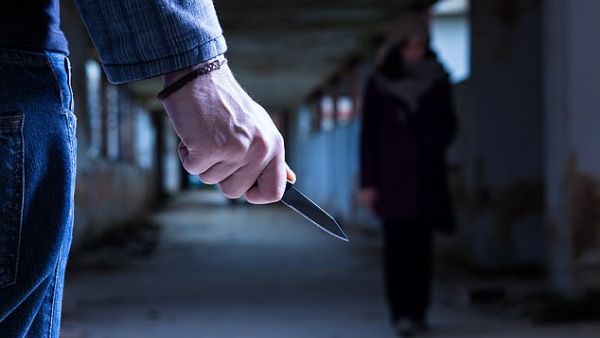Troubled children are to be sent to 37 new special schools as part of the Government's response to Britain's knife crime crisis.
The Department for Education said about 3,500 extra school places will be made available at the schools.
They will provide specialist support for pupils who may have been or are at risk of being excluded from mainstream education.
The drive is part of the Government's attempts to tackle the the growing knife crime crisis, in which school exclusions appear to be a factor.
Almost a quarter of children caught with knives - 21 per cent - have been expelled or suspended from school, according to government figures.
The current crisis has seen 26 knife murders across the UK from January 1 to March 7, while last year there were 135 homicides in London alone.
The latest victim was Ayub Hassan, 17, who was stabbed near a Waitrose by West Kensington tube station in London last Tuesday.
The new measures come following yesterday's official figures which showed that knife crime is rising four times faster in the Home Counties and rural areas of the UK than in London.
Across 34 counties in England and Wales outside London, knife related offences have risen by 45.7 per cent.
As well as trying to keep children at risk from exclusion, or those who have already been excluded, in mainstream education, the new schools will have other benefits.
They will also provide specialist education for those with autism, severe learning difficulties or mental health conditions and will also boost choice for parents.
Education secretary Damian Hinds said: 'We want every school to be a school for children with special educational needs and disabilities.
'That's why we are investing significant funding into Special Education Needs units attached to mainstream schools and in additional support so children with education, health and care plans can access mainstream education.
'But we recognise some children require more specialist support. These new special free schools and alternative provision schools will make sure that more complex needs can be provided to help support every child to have a quality education.'
Leora Cruddas, chief executive of the Confederation of School Trusts, said: 'These additional school places will enable children with special needs and those facing difficulties to have access to high quality education provision.
'Over the past week, there has been much debate in the media about children and young people whose social, emotional and behavioural needs make them vulnerable.
'Today's announcement of a range of specialist provision in every region of the country is hugely welcome.'
This article has been adapted from its original source.








